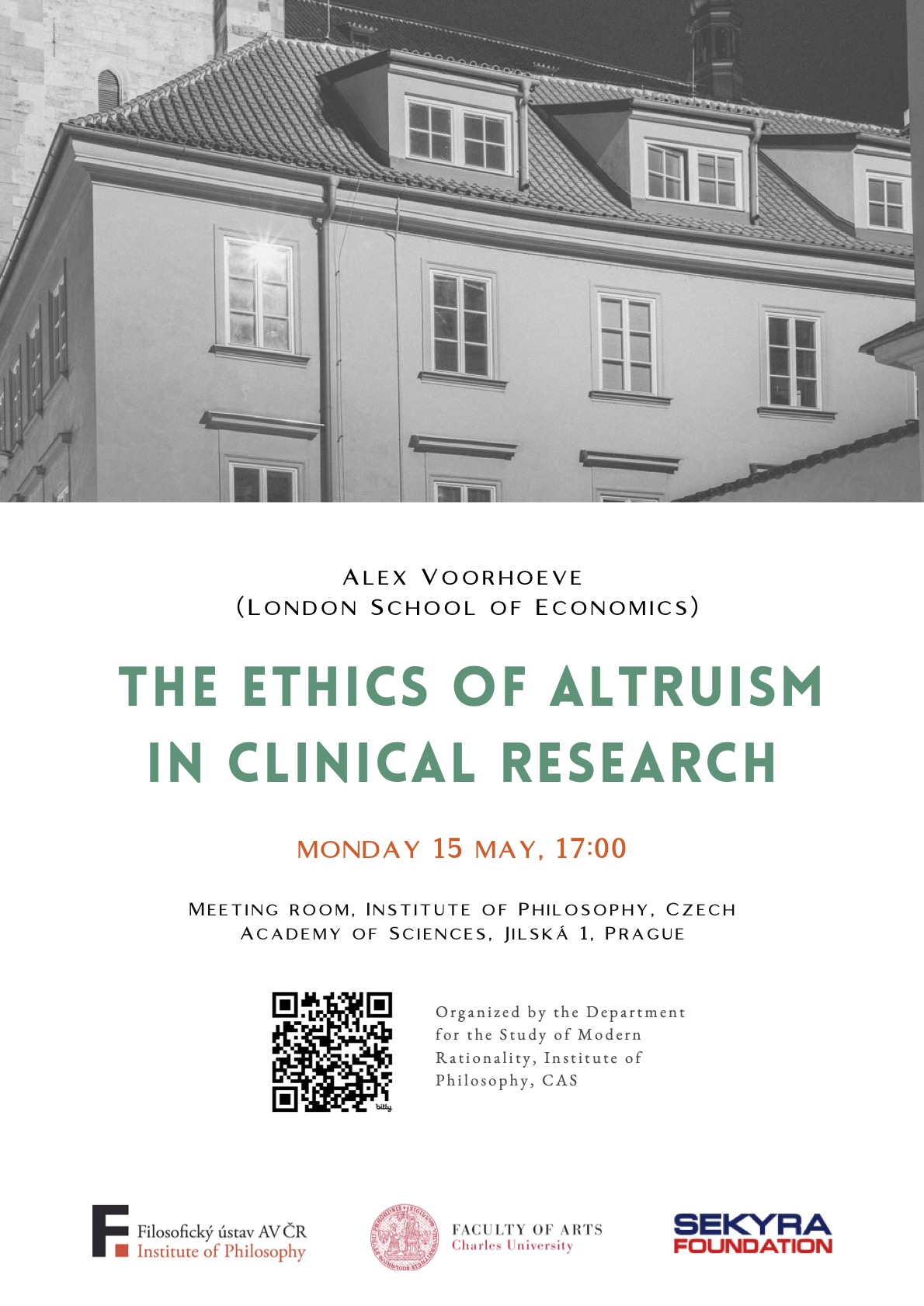Přednášející: Alex Voorhoeve (London School of Economics)
Abstract
Participation in medical research on altruistic grounds is naturally regarded as a good thing when it furthers socially valuable aims and enables altruistic individuals to advance their ends. Questions arise, however, about the ethics of appealing to the altruism of research subjects who may lack the capacity to consent, and whose altruism is associated with a medical condition. In this paper, we explore under which conditions it is permissible to enrol such participants in research that exposes them to risks, through a case study of patients with Williams syndrome, who (1) tend to display higher levels of altruism than the general population, and (2) often have mild to moderate cognitive impairment, which can impact their capacity to consent. We argue that it can be ethical to appeal to their altruism and to enrol them in research that exposes them to somewhat greater risks than would be acceptable if one considered only their narrowly self-regarding interests, so long as their participation would further their firmly held aims. We also argue that to avoid exploiting such participants, researchers should avoid overselling the research's expected benefits and should not prey on inclinations that are unconnected to participants' firmly held aims.








